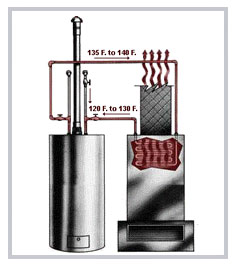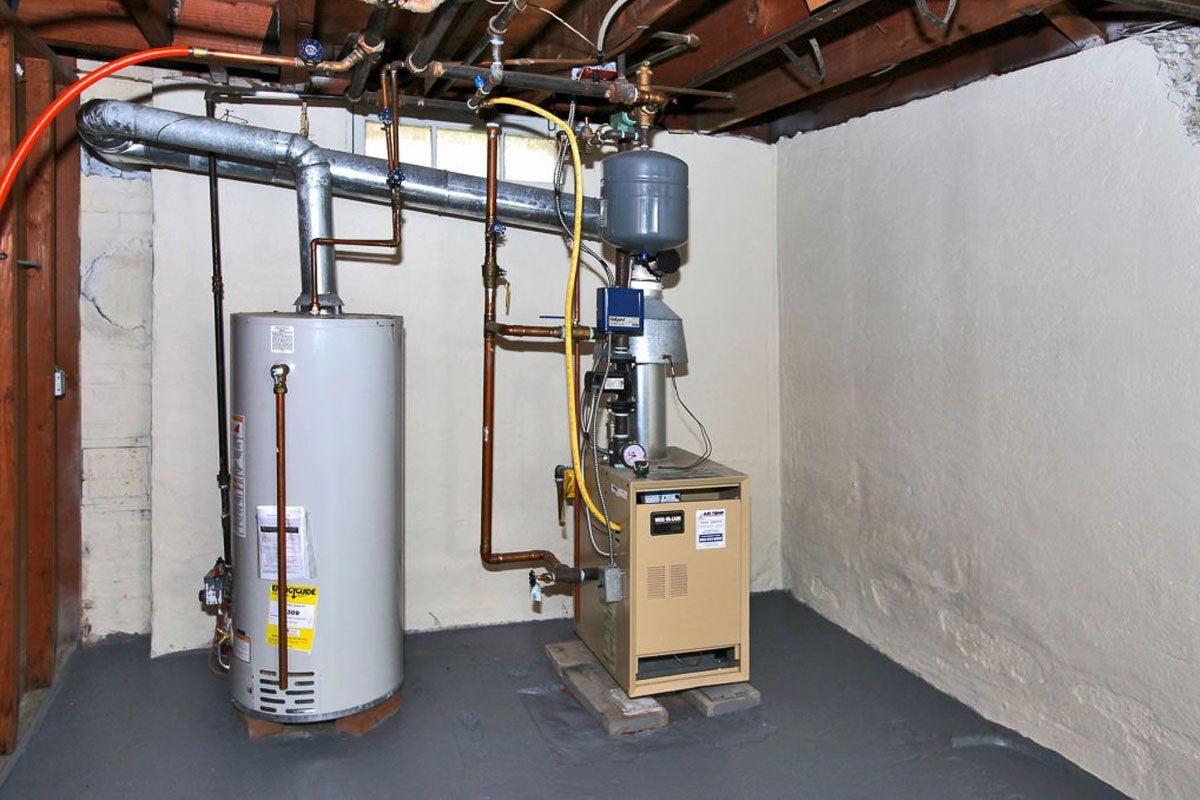Water heaters and furnaces are typically separate systems. They serve different functions: heating water and air, respectively.
Many homeowners wonder about the relationship between water heaters and furnaces. Understanding this connection can help with maintenance and energy efficiency. Water heaters provide hot water for daily tasks, while furnaces keep your home warm. Some systems may use a shared energy source, like gas or electricity.
However, they operate independently. Properly maintaining both appliances ensures optimal performance and reduces utility bills. Knowing how they work together can also help in troubleshooting issues. Regular inspections can prevent unexpected breakdowns and enhance the longevity of both systems, ensuring your home remains comfortable year-round.
Page Contents
- 1 Introduction To Home Heating Systems
- 2 Basics Of Water Heaters
- 3 Understanding Furnaces
- 4 Connection Between Water Heaters And Furnaces
- 5 Benefits Of Combined Systems
- 6 Challenges And Considerations
- 7 Choosing The Right System For Your Home
- 8 Future Of Home Heating
- 9 Frequently Asked Questions
- 10 Conclusion
Introduction To Home Heating Systems
Home heating systems come in various types. Each system has different functions and features.
Some common types include:
- Furnaces: These use gas or electricity to heat air.
- Boilers: They heat water for radiators or baseboard heating.
- Heat Pumps: These move heat from outside to inside.
- Electric Heaters: These use electricity to generate heat directly.
Confusion often arises about water heaters and furnaces. Many think they are the same. While both heat, they serve different purposes. A furnace heats air, while a water heater heats water. Understanding these differences helps in choosing the right system.

Credit: www.greenbuildingadvisor.com
Basics Of Water Heaters
A water heater heats water for various needs in a home. It provides hot water for showers, washing dishes, and laundry. Understanding its functionality is key to efficient use.
There are two main types of water heaters: tank and tankless. Tank water heaters store hot water in a large tank. They keep water hot until it is needed.
Tankless water heaters heat water on demand. They do not store water. This can save energy and space.
Choosing the right type depends on your hot water needs and home size. Each type has its own benefits and drawbacks.
Understanding Furnaces
Furnaces are important for heating homes. They use fuel to create heat. This heat warms the air, which is then circulated through the house. Different types of furnaces exist, including gas, electric, and oil.
Gas furnaces are common. They burn natural gas to produce heat. Electric furnaces use electricity to generate warmth. Oil furnaces rely on oil as fuel, often used in colder areas.
Understanding how furnaces work helps homeowners maintain them. Regular checks keep them efficient and safe. Knowing the type of furnace can aid in choosing the right water heater connections.

Credit: www.cpiplumbing.com
Connection Between Water Heaters And Furnaces
The connection between water heaters and furnaces can vary. Some systems use direct connections. This means the water heater gets heat directly from the furnace. It is often done through pipes. This setup can save energy and space.
In contrast, indirect connections involve separate systems. The water heater operates independently from the furnace. In this case, both systems work together but do not share heat directly. Each system may still use the same energy source, like natural gas or electricity.
| Connection Type | Details |
|---|---|
| Direct Connection | Heats water directly from the furnace |
| Indirect Connection | Operates separately but can share energy source |
Benefits Of Combined Systems
Combined systems like water heaters and furnaces offer great benefits. They enhance energy efficiency, which leads to lower utility bills. This setup often uses less fuel than separate systems.
With a combined system, less space is required for installation. These systems can be placed in smaller areas, freeing up room in your home. This is especially helpful in compact living spaces.
Challenges And Considerations
Connecting a water heater to a furnace can bring many challenges. Installation complexities arise from matching the systems properly. Proper ventilation and piping are crucial for safety. Incorrect installation can lead to leaks or inefficiencies.
Regular maintenance is essential for both units. A water heater needs flushing to remove sediment. Check for any leaks or corrosion around connections. The furnace should be serviced yearly to ensure optimal performance.
| System | Maintenance Requirement |
|---|---|
| Water Heater | Flushing sediment regularly |
| Furnace | Yearly service check |
Choosing The Right System For Your Home
Choosing the right system is crucial for your home. Assessing needs helps determine the best solution. Consider your family’s hot water usage. Think about the size of your home and the number of bathrooms.
Professional consultation can provide expert insights. Heating professionals evaluate your current setup. They can suggest systems that fit your budget and space. Always ask for multiple quotes before deciding.
| Considerations | Questions to Ask |
|---|---|
| Hot Water Demand | How much hot water do you need daily? |
| Energy Efficiency | What are the energy ratings of different systems? |
| Installation Costs | What are the total costs for installation? |

Credit: www.diychatroom.com
Future Of Home Heating
New innovations in home heating are exciting and helpful. Many homes now use smart technology to control temperature. Energy-efficient systems save money and reduce waste. This means using less fuel and electricity.
Sustainable solutions are also becoming popular. Solar panels can heat water for homes. This helps the environment and cuts energy bills. Geothermal systems use the earth’s heat for warmth.
Hybrid systems combine different energy sources. They adapt to weather changes and save energy. Homeowners enjoy lower costs and increased comfort.
| Innovation Type | Benefits |
|---|---|
| Smart Technology | Controls temperature easily |
| Solar Panels | Reduces energy bills |
| Geothermal Systems | Uses natural heat |
| Hybrid Systems | Combines energy sources |
Frequently Asked Questions
Does A Furnace Have Anything To Do With Hot Water?
A furnace primarily heats air for indoor spaces. However, some systems, like a boiler, use a furnace to heat water. This water can be used for heating or domestic purposes. Always check your specific system type to understand its functions.
Does Water Go Into The Furnace?
Water does not go into a furnace. Furnaces use air to heat spaces, while boilers use water. If your heating system includes water, it’s likely a boiler, not a furnace. Always check your system type for proper maintenance and operation.
Can A Water Heater And Furnace Be Next To Each Other?
Yes, a water heater and furnace can be next to each other. Ensure proper ventilation and follow local building codes. Check for sufficient space to allow for maintenance and safety. Consult a professional if unsure about installation requirements.
A water heater and furnace should not share the same vent. Different venting requirements can lead to safety issues. Each appliance needs its own vent to ensure proper exhaust and prevent carbon monoxide buildup. Consult a professional for safe installation practices.
Conclusion
Understanding the connection between your water heater and furnace is vital for home efficiency. A well-maintained system can save energy and reduce costs. Always consult a professional to ensure everything is functioning properly. Regular checks can prevent issues, keeping your home comfortable and safe year-round.
Prioritize your home’s heating needs today.
